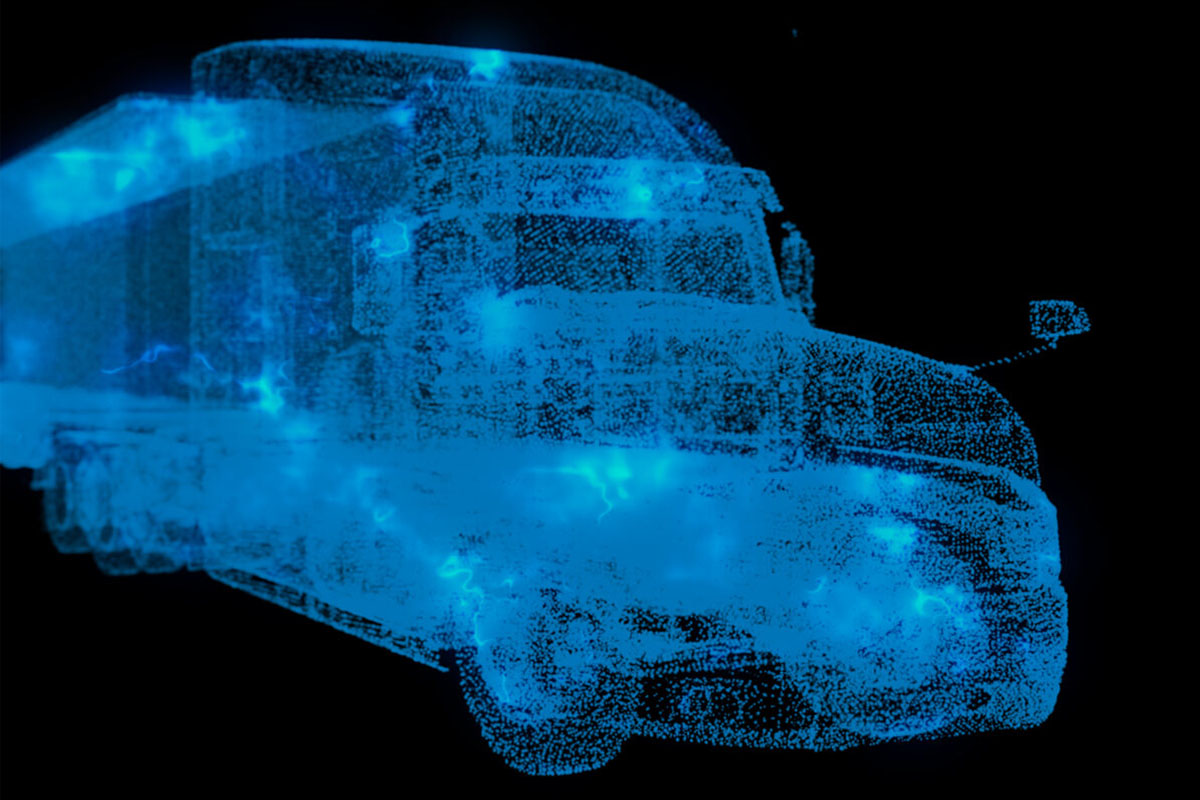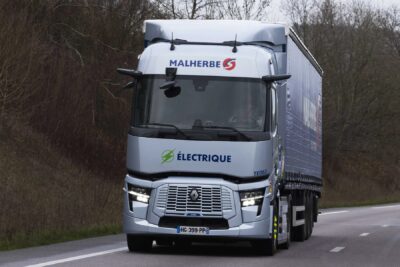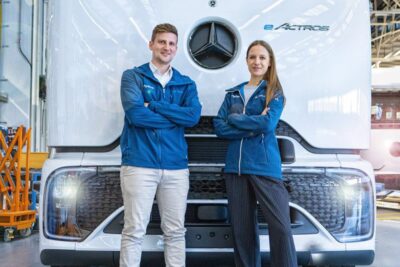Cellcentric makes future FC system a virtual experience
Cellcentric opened pilot production for its fuel cell systems at the Esslingen-Pliensauvorstadt site in June. At the IAA Transportation in Hanover, Germany, the joint venture between Daimler Truck and the Volvo Group now wants to provide an outlook of the dimensions and design of its systems. To this end, the company is placing a virtual 3D model at the centre of its stand. For the first time, visitors can see the more powerful FC system for long-haul electric trucks the company announced three months ago. According to Cellcentric, it is characterised by a compact design, a net output of more than 350 kW and a low weight thanks to a highly integrated single-system package solution.
“The virtual 3D model signals the launch of the highly efficient and competitive NextGen single-packaging fuel cell system for heavy-duty long-distance transport, which will offer market-leading TCO,” Cellcentric states. After the development phase and prototype production, the preliminary stage of industrial production will now follow.
According to Cellcentric, the NextGen system should achieve the “performance characteristics of comparable conventionally powered long-distance trucks” and, at the same time, reduce fuel consumption by 20 per cent compared to the current fuel cell generation BZA150. The new system, with a maximum peak output of 375 kW, weighs less than 400 kilograms and offers a 30 per cent higher power density. Particularly relevant for easy integration into trucks: the system design and performance enable a 40 per cent reduction in waste heat at peak load, significantly reducing the truck’s cooling requirements. This is “an important strategic product improvement,” Cellcentric said in June.
What is relevant for the company in terms of production and for customers in terms of costs: CellCellcentric’s latest iteration of its fuel cell system is also said to have a 40 per cent reduction in construction complexity – here too compared to the BZA150 – which is significant for the company in terms of production and for customers in terms of costs. At the same time, the system is said to be so robustly designed that its service life should be around 25,000 operating hours.
Pilot production is now underway in Esslingen, Germany. Cellcentric wants to move from the research phase to prototype production and optimise the processes required for large-scale production. Production will be automated step by step in the pilot plant. Large-scale production of the fuel cell systems will then take place in Weilheim- and should start by the end of the decade.





0 Comments